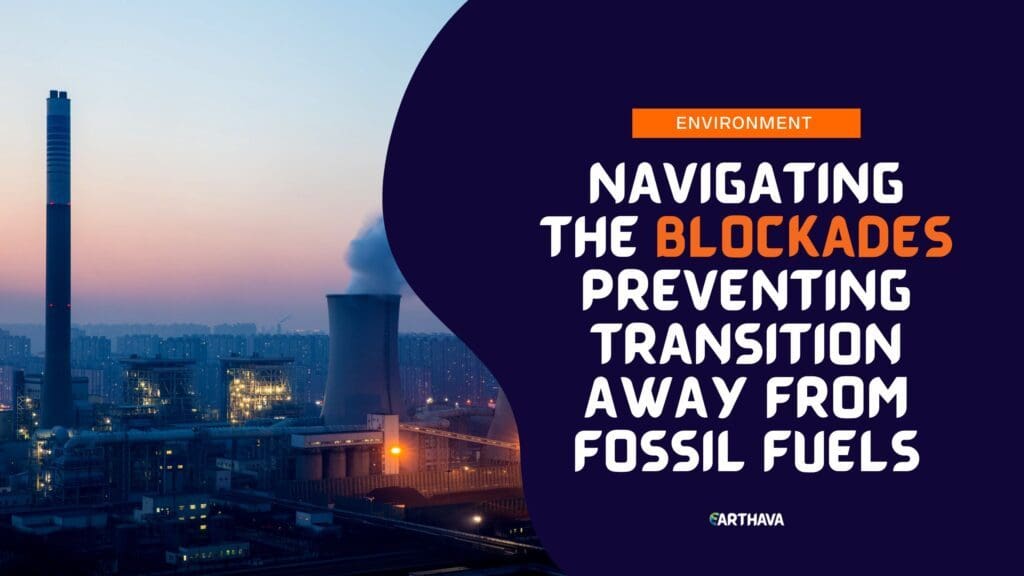There is little credible doubt that urgent changes need to be made to protect our environment. One of these changes includes reducing our reliance on fossil fuels, thus reducing our output of harmful emissions and our reliance on precious land resources.

Some oil and gas companies have committed to making this meaningful change by transitioning to renewable energy practices. Nevertheless, these businesses still face significant challenges in their efforts to follow through here. Overcoming these obstacles will be key to ensuring our society is less reliant on the energy sources that disrupt the environment.
We’re going to have a look at some of these blockades preventing companies from transitioning away from fossil fuels. What are they and how can companies navigate these?
Recognizing the Benefits
Some oil and gas companies hesitate from transitioning to green energy, as there still is a lack of awareness of the benefits associated with this switch. There are, of course, plenty of studies that support the environmental imperatives to make changes. However, there also needs to be a greater focus on how changes benefit everyone.
For instance, from a business perspective, there are fewer raw materials costs involved with renewable energy. This means a reduction in overheads should fossil fuel businesses transition. Going green also has a direct positive impact on individuals’ health. Fewer emissions ultimately lead to improved air quality and oxygen intake for the population. Not to mention that alterations mean fossil fuel businesses would play a role in supporting the wider green initiatives of communities that support public health.
So, what are the solutions to these blockades? Well, in some ways, better communication may be key. Large corporations and small enterprises need to be frequently reminded of the business benefits of going green. Environmental science researchers may need to arrange regular meetings with the boards of energy companies to present evidence surrounding public health and commercial benefits.
There Are Political Challenges
The most challenging hurdle oil and gas companies face is also one of the primary challenges: political opposition. There are political influencers in local and national governments opposed to moving away from non-renewables. This can be from a misinformed ideological standpoint that denies the human influence on climate change. There are also prevalent surrounding the idea that communities are reliant on fossil fuel industries for jobs.
This is problematic for more than just the political pressure on fossil fuel providers to maintain their current methods. Even for those enterprises determined to transition, politics can still be a hurdle. Particularly for providers in areas of the country with a majority of conservative political leaders, there may be some difficulties in obtaining transition funding from local governments. That said, despite Republican objections, many transitioning providers in red states will still be able to access federal climate bill funds.
There’s certainly no easy way to navigate blockades stemming from political sources. Ideally, there would be political consensus on the urgency to transition away from fossil fuels, leading to widespread resource provision to achieve changes swiftly and sustainably. But this is unlikely to arise any time soon.
As such, transitioning fossil fuel businesses should engage with local and national politicians supportive of change. Some companies have taken the approach of pledging to reduce fossil resource extraction projects. This type of divestment in public land, particularly in less supportive locations, may also send a distinct message to politicians in those areas. Industrial action from workers in these fields and protests in communities may also demonstrate to local governments that there is a growing public and commercial demand for change.
The Market Discourages Change
Another key issue concerning blockades is the influence of the market. One of the reasons that fossil fuels have maintained a foothold for so long is the profits they bring to the economy and shareholders. Transitioning to clean methods that make energy cheaper for consumers is often not an attractive prospect to shareholders and investors.
Unfortunately, in some cases, this has already led to poor decision-making on behalf of companies. In the Arctic, oil companies sought to protect their current investments by installing artificial chillers to refreeze melting areas around rigs. While these tools may have allowed them to keep drilling profitably for some time, this would have been likely to have a significant negative environmental impact.
The solution to the influence of the market may be to escalate consumer demand for renewables. A public that is unwilling to invest in fossil fuels deprives investors and shareholders of profit. Though, this type of widespread consumer action may take some time. Another approach can be that providers seek to build more resilient business models with more diverse energy investment portfolios. This can create less turbulence for shareholders during the transition while also investing in potentially valuable renewable energy technology opportunities.
Conclusion
Navigating the blockades to transition away from fossil fuels is far from easy. Some issues may be addressed by better communication about the inherent business and health benefits of the change. However, the political and market obstacles can be more challenging to overcome. It is likely to require a combination of public pressure and business strategy to impact these elements. By committing to action, energy providers and individual citizens may be able to push for renewable resources.


